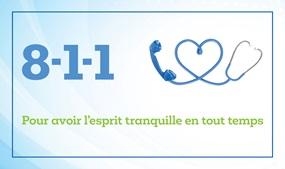Expanded hemodialysis services enable community-based treatment

Pam Veinotte, an RN with the Summerside Hemodialysis Unit at Prince Count Hospital, specializes in nephrology - or kidney function - and has seen the way dialysis and other kidney treatments change people’s lives for the better. That’s why she welcomes more investments to expand hours and locations for dialysis patients.
Government is investing $740,000 to increase staffing, supplies and medications needed to support the increase in patient demand and need for hemodialysis treatment across the province.
For many people with kidney disease, dialysis is both a life-saving treatment and a life-altering commitment.
“Prior to hemodialysis there wasn’t a lot that people could do when they had kidney disease. There were some lifestyle changes that helped, but essentially people would get sicker as the disease progressed and would just have to hope for a transplant. With hemodialysis, they’re just a whole lot healthier,” Veinotte said.
“But people don’t always realize what it entails. Hemodialysis is pretty much a full time job for our patients. They have to be here three times a week for visits that can be anywhere from three to four and a half hours. That is why it is so important that we have services in place to help support our patients and their caregivers and as nurses we build such a close relationship with our dialysis families.”
Hemodialysis treatment puts big demands on patients and their caregivers. “If you’re in a rural community then you have the drive time on top of the hemodialysis time, so a treatment can require half a day or more for both patient and the person driving them to and from the clinic,” Veinotte said.
“The more communities we can put the services into and the more that we can offer flexible hours, then that makes it possible for people to have lives that aren’t as centered around hemodialysis appointments.”
“We have an excellent Provincial Renal Program in PEI and continue to expand services to ensure that we are in-line with best practice standards and evidence-based care,” Health and Wellness Minister Robert Mitchell said. “We know that investments such as these will help support Islanders living with kidney disease and can make a world of difference for the patients and their families.”
“It used to be that hemodialysis was only available in Halifax. There was a girl I knew personally who moved to Halifax, away from her friends and family, when she was 18 because that was where she could get the dialysis she needed,” Veinotte said.
The Summerside Hemodialysis Unit at Prince County Hospital introduced an afternoon shift on Tuesdays, Thursdays, and Saturdays that will help to treat an additional six patients. New staff have been hired and trained to support the expansion including an LPN and a dialysis support worker, as well as administrative and managerial supports.
Planning is underway to increase the treatment capacity from 67 to 74 patients at the Charlottetown Hemodialysis Unit at the Queen Elizabeth Hospital. In 2016, the Souris Hemodialysis Unit underwent renovations and upgrades, increasing treatment capacity from 10 to 12 patients. The Alberton Hemodialysis Unit at Western Hospital is undergoing renovations and upgrades, which are expected to be completed in the spring.
There are currently 103 Islanders receiving hemodialysis treatment, with another 9 Islanders on a “close watch” list for treatment. In addition to the hemodialysis service, there are 26 Islanders receiving peritoneal dialysis and 105 post-kidney transplant patients being supported through the Provincial Renal Clinic.
If you or a loved one requires dialysis, investigation, or management of kidney disease, the PEI Renal Program is a community-based service that can help you.,


